
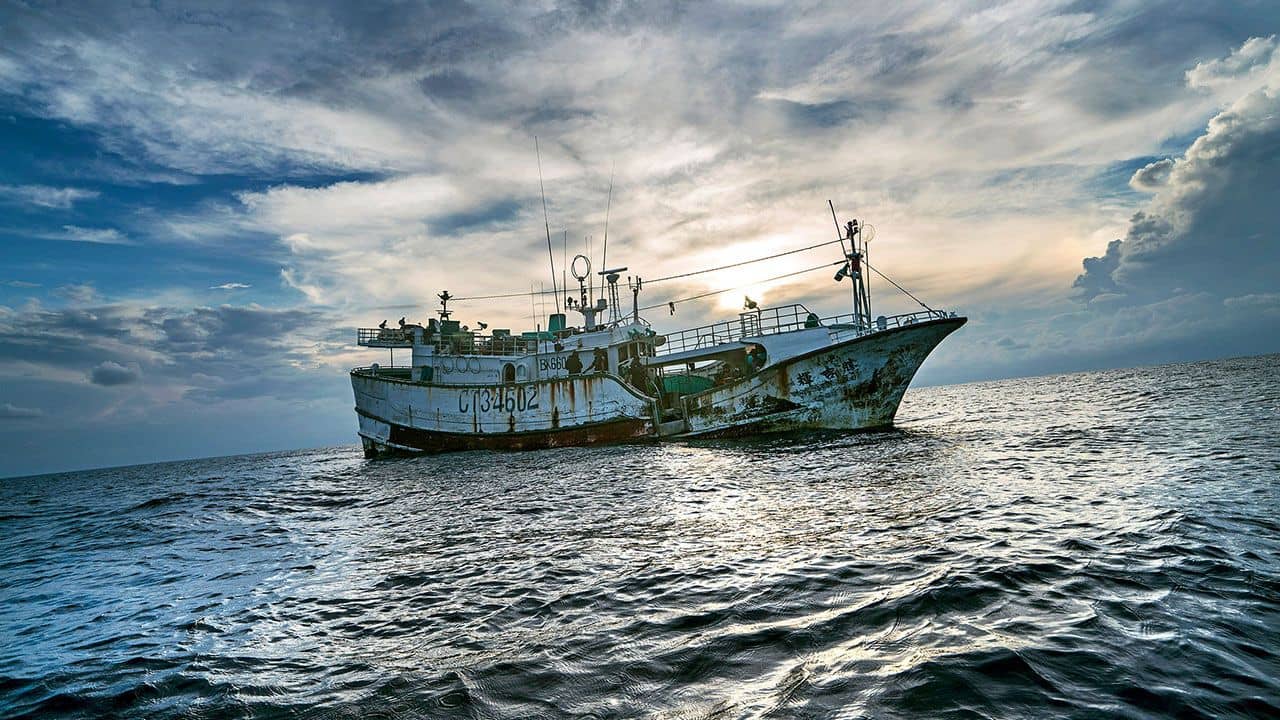
The Ocean covers 70 percent of the world’s surface and provides for half of the oxygen in our atmosphere. This means that every second breath we take comes from the Ocean - yet laws governing its appropriate use are almost non-existent. Today’s maritime laws are outdated and have hardly developed in the past century.
Fisheries provide a vital source of livelihood, employment, recreation, trade and economic well-being for people throughout the world. Parliamentarians are a key missing piece towards sustainable success in saving our oceans. As the democratically-elected representatives of the people, parliamentarians have the voice, visibility and legislative power to bring about change.
To acknowledge the immense impact of the Ocean, the United Nation’s Sustainable Development Goal 14 (SDG 14) specifically aims to “conserve and sustainably use the oceans, seas and marine resources for sustainable development.”
Parliamentary advocacy for the protection of the oceans is vital to ensure a sustainable future for all human kind. That is why in December 2016 in Dakar, Senegal, PGA’s Executive Committee reviewed the results of a feasibility study requested by PGA member Ms. Petra Bayr, MP (Austria), and determined to launch the PGA’s Oceans Campaign.
The goal of the campaign is to end impunity for crimes committed on and against the world’s oceans and their related human rights violations through increased transparency in the fisheries sector and seafood industry.
For this purpose, PGA encourages its members to take action to contribute to the implementation of SDG 14.4, 14.6, 14.b, and 14.c namely:
Depending on availability of resources, PGA members may also contribute to the implementation of SDG targets 14.1 and 14.5, namely:
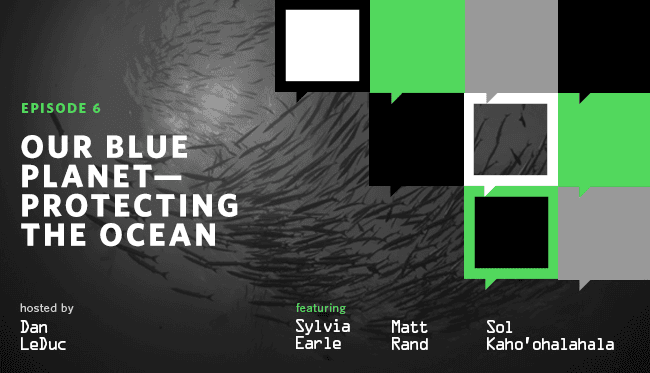

Within the PGA Oceans Campaign there are various ongoing projects, including:
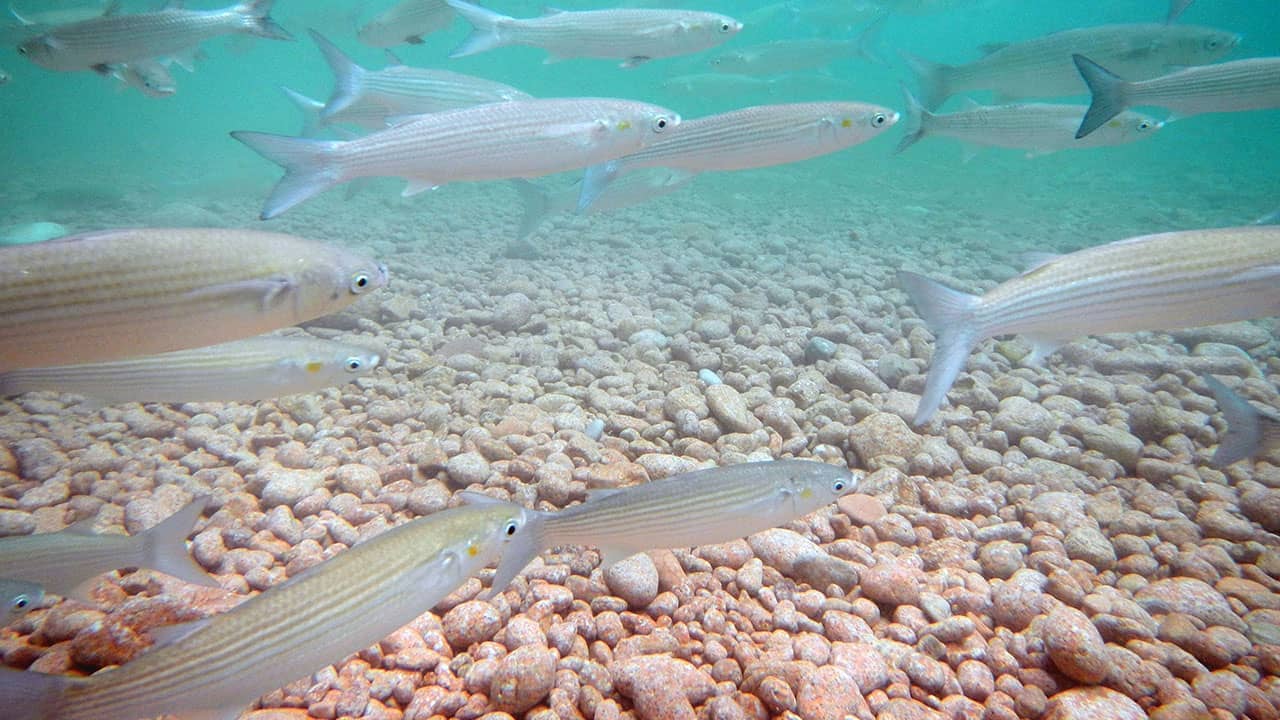
Climate health is directly linked to the ocean. The ocean absorbs nearly one-quarter of carbon dioxide emissions and roughly 90 percent of the excess heat generated by greenhouse gas emissions.
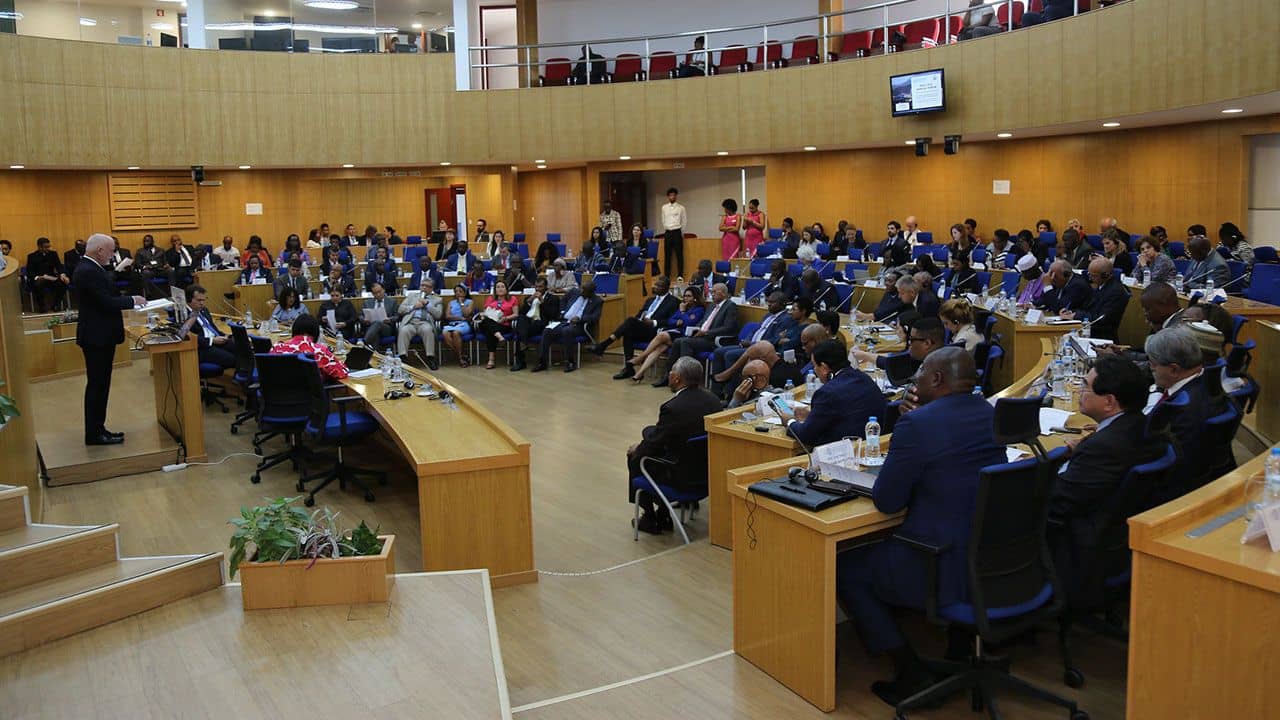
The Consultative Assembly of Parliamentarians for the Oceans (CAP-Oceans) is the only gathering of legislators from around the world focused solely on the protection of the oceans and our fishers.
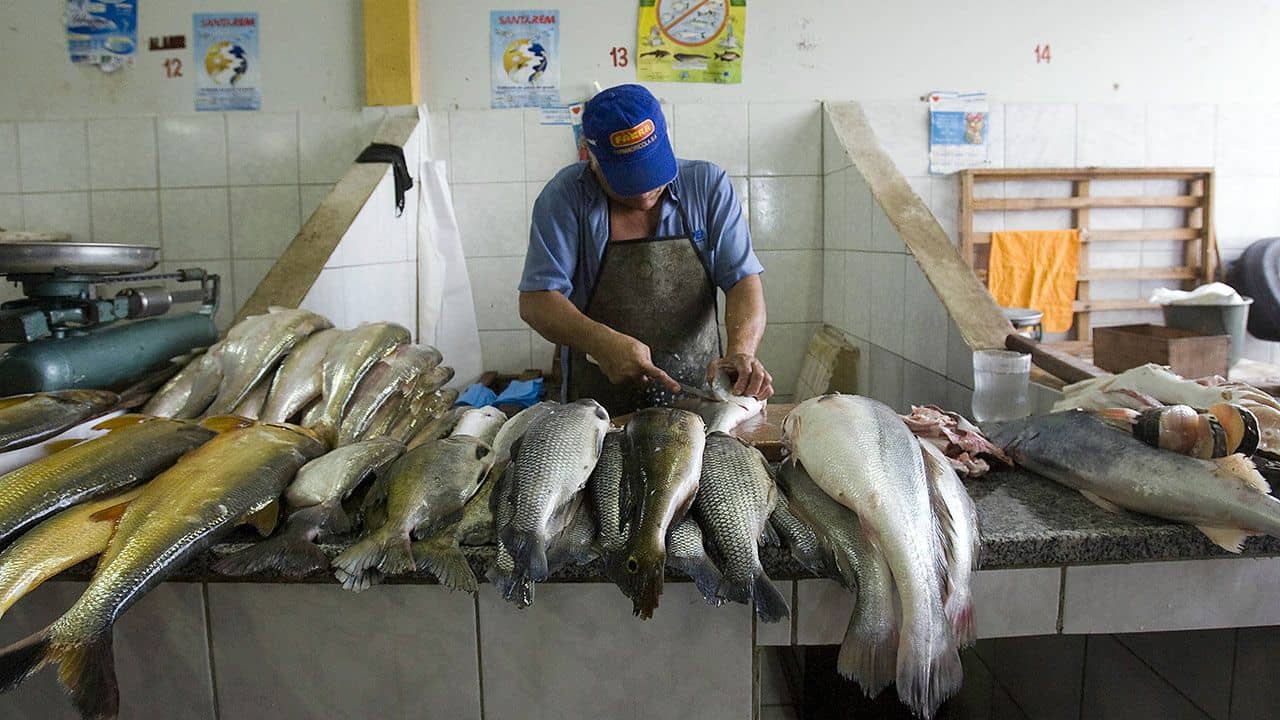
IUU fishing persists because a lack of transparency and regulation yields high profit with low risk. The oceans are a vast area to cover, but there is limited national capacity for fisheries monitoring, control, and surveillance.

Through this Declaration, parliamentarians around the world are united in adopting a precautionary approach for this common heritage of humankind, and the protection of the human rights for all people who depend on the Ocean.
Supported by an expert Secretariat, PGA members work together to educate, sensitize, build technical capacity, and strengthen the political will of parliamentarians to achieve campaign objectives through concrete legislative and policy initiatives. PGA works with individual parliamentarians in their national contexts through country-specific strategies, leveraging that capacity with international networking to facilitate connections among parliamentarians and build bridges with civil society, domestic and international policy-makers, and other stakeholders.
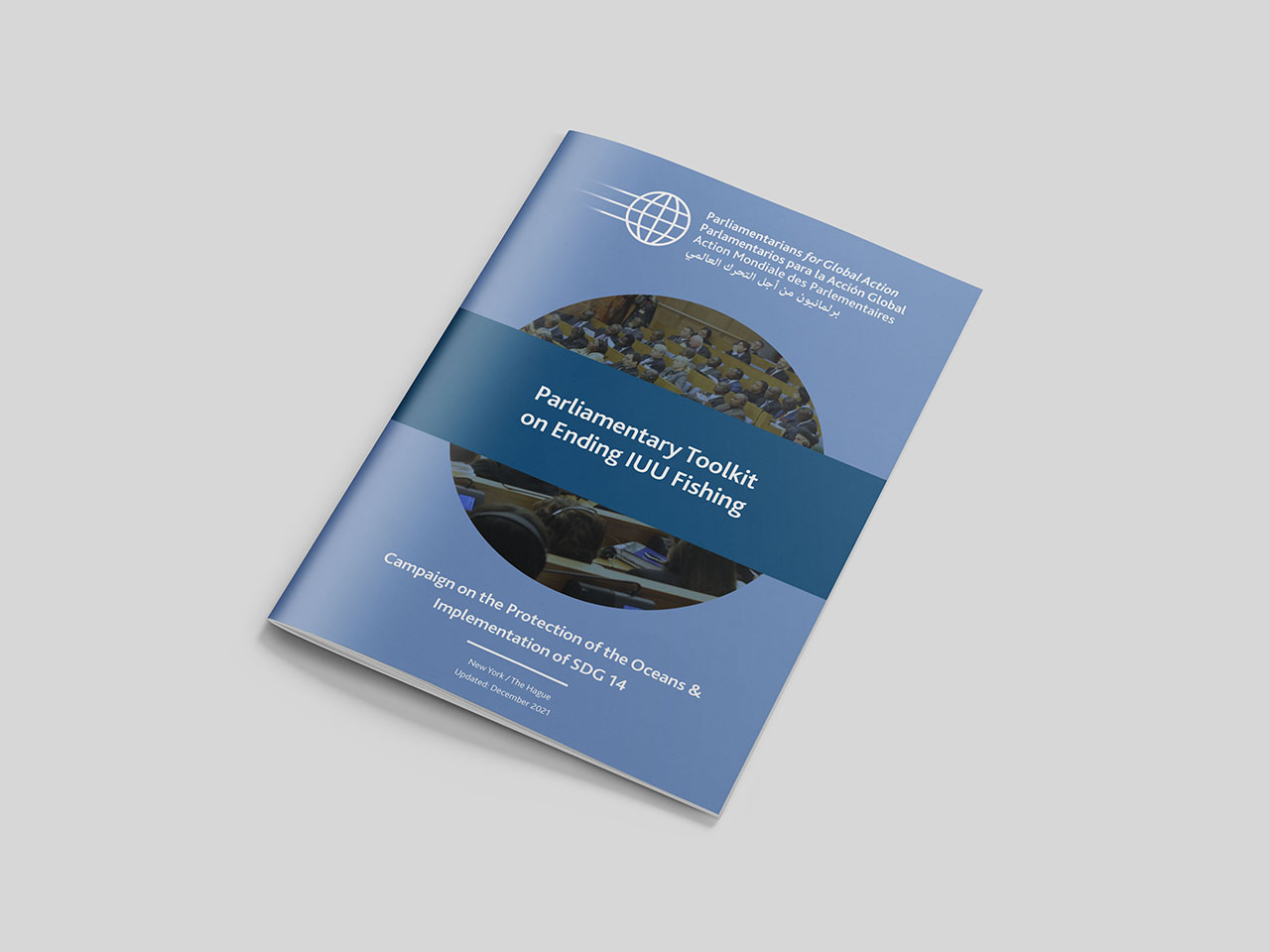
This Parliamentary Toolkit provides insight into IUU fishing, how it relates to human security, and highlights the role parliamentarians can play in protecting the Oceans and supporting the implementation of United Nations Sustainable Development Goal (SDG) 14: Life Below Water.
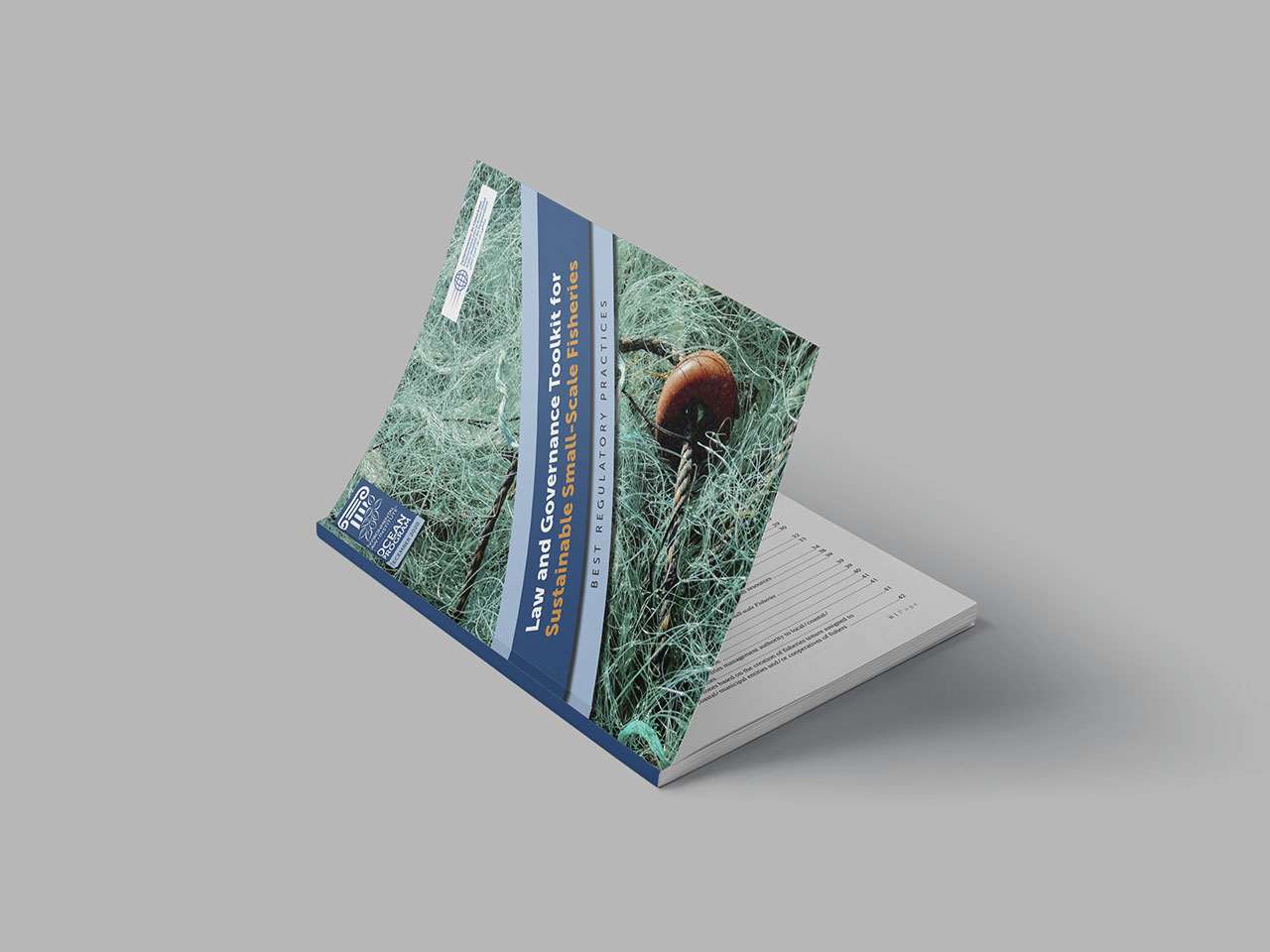
This Toolkit presents a methodology for assessing the reform needs to strengthen SSF governance, along with examples of model regulatory language for the core governance elements.
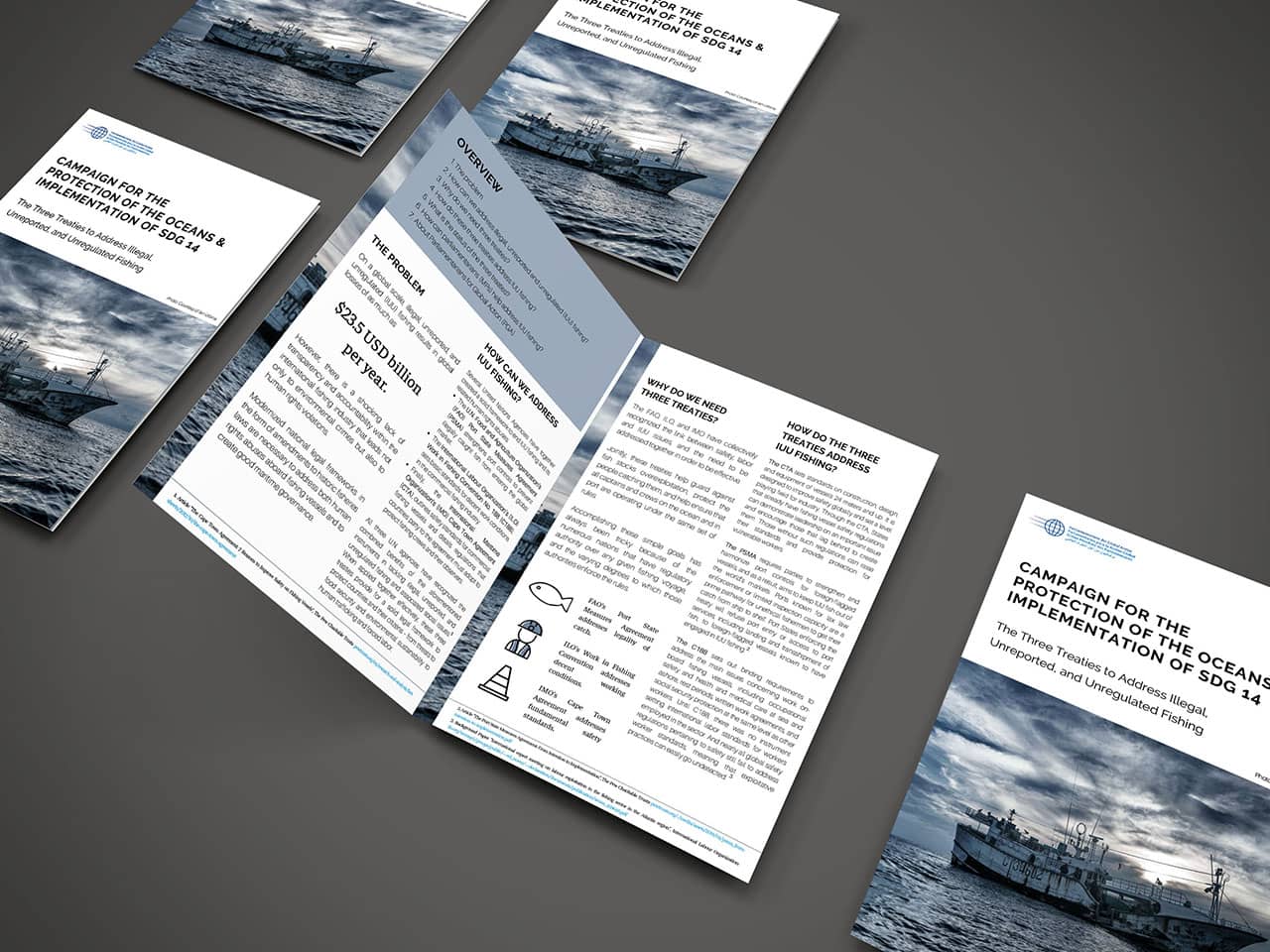
There are many actions MPs can take to contribute to the fundamental safety standards, decent working conditions, and legality of catch that together address IUU fishing.
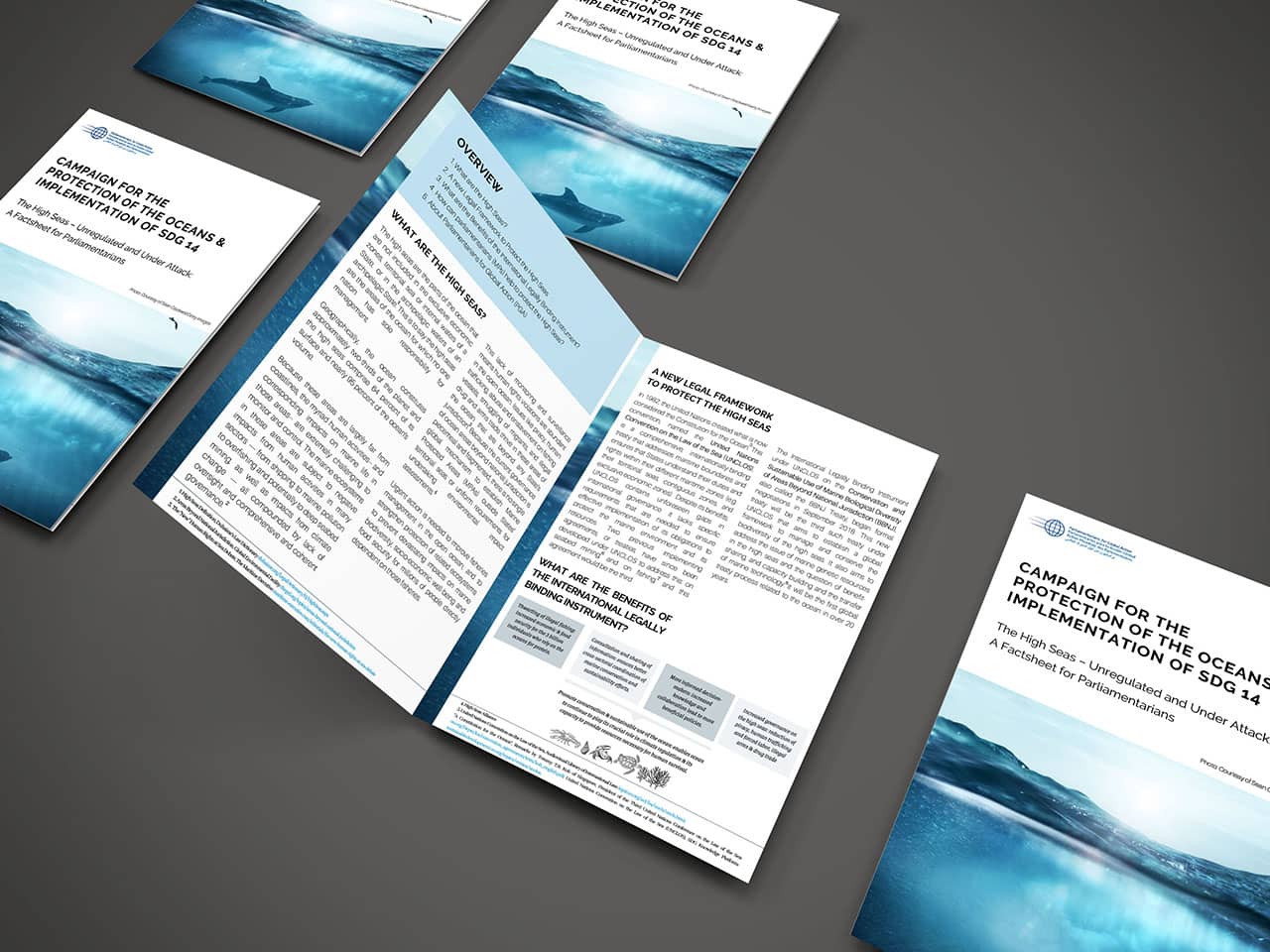
Urgent action is needed to improve fisheries management in the open ocean, and to strengthen protection of related ecosystems to prevent devastating impacts on marine biodiversity, socio-economic well-being and food security for millions of people directly dependent on those fisheries.
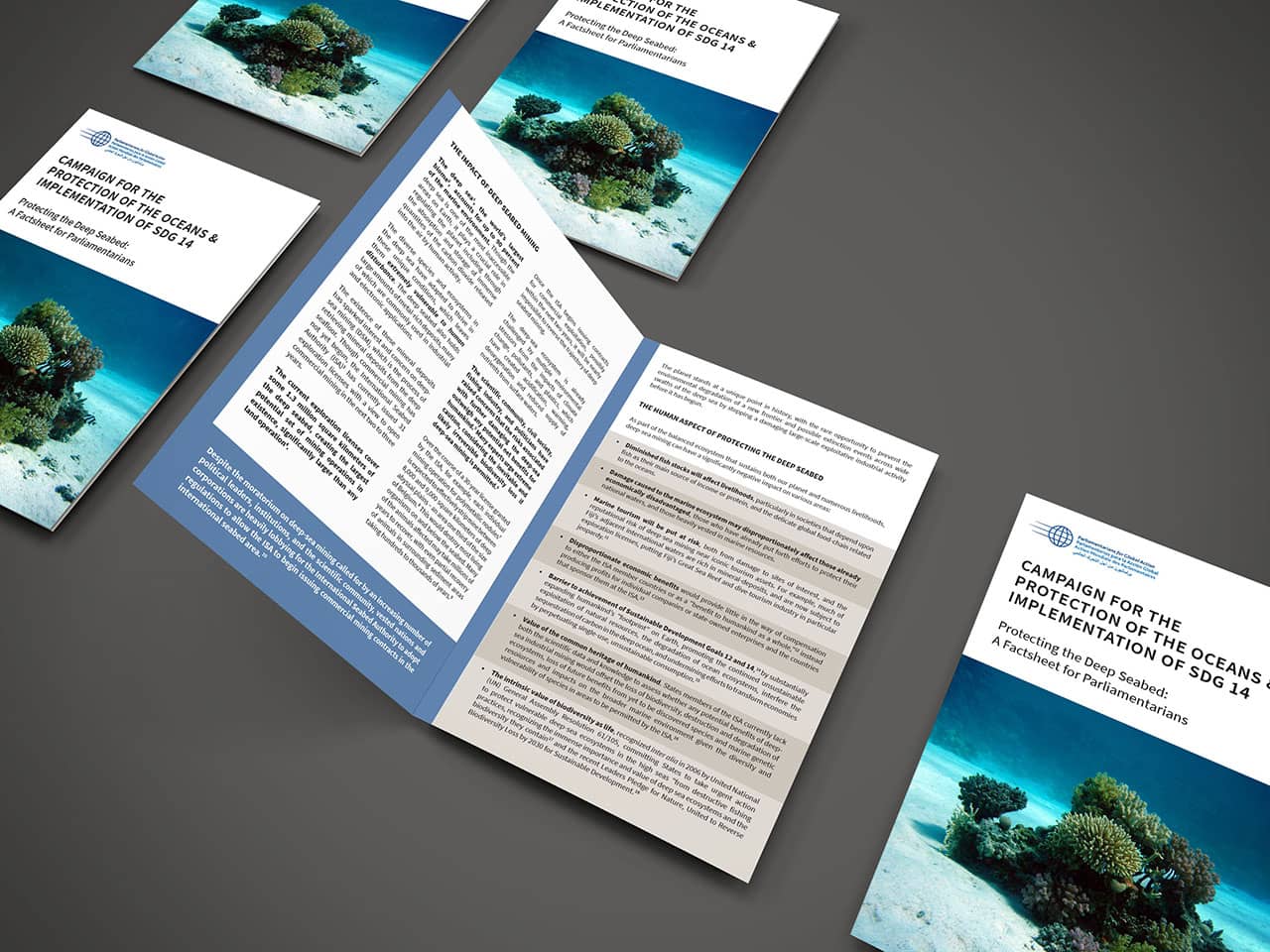
The scientific community, civil society, fishing industry, and politicians have raised concerns that the risks associated with further damaging the deep-sea outweigh any potential net benefits for humankind.
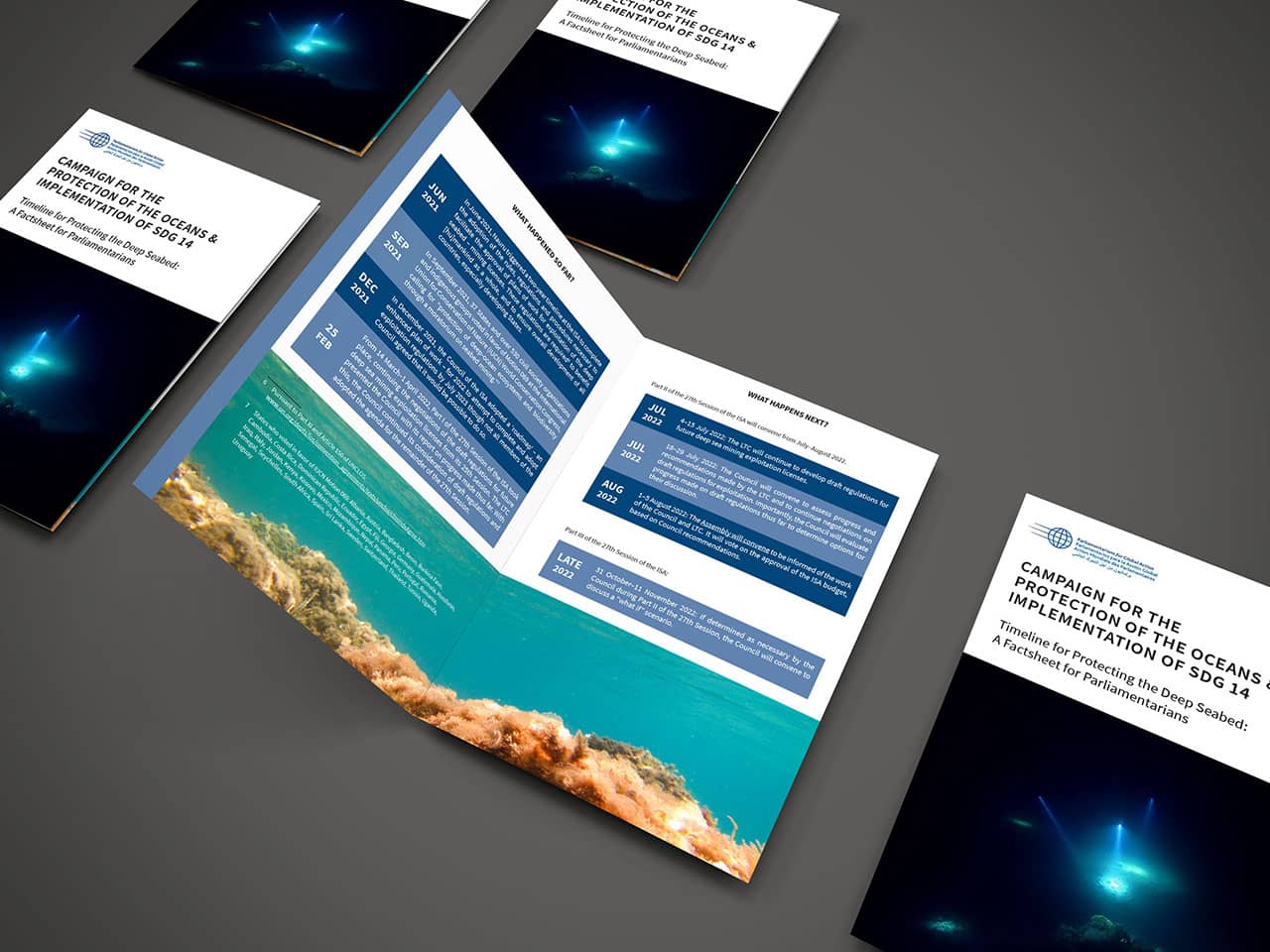
The International Seabed Authority (ISA) has initiated negotiations to develop regulations for deep seabed mining (DSM) exploitation and is attempting to adopt them by July 2023.
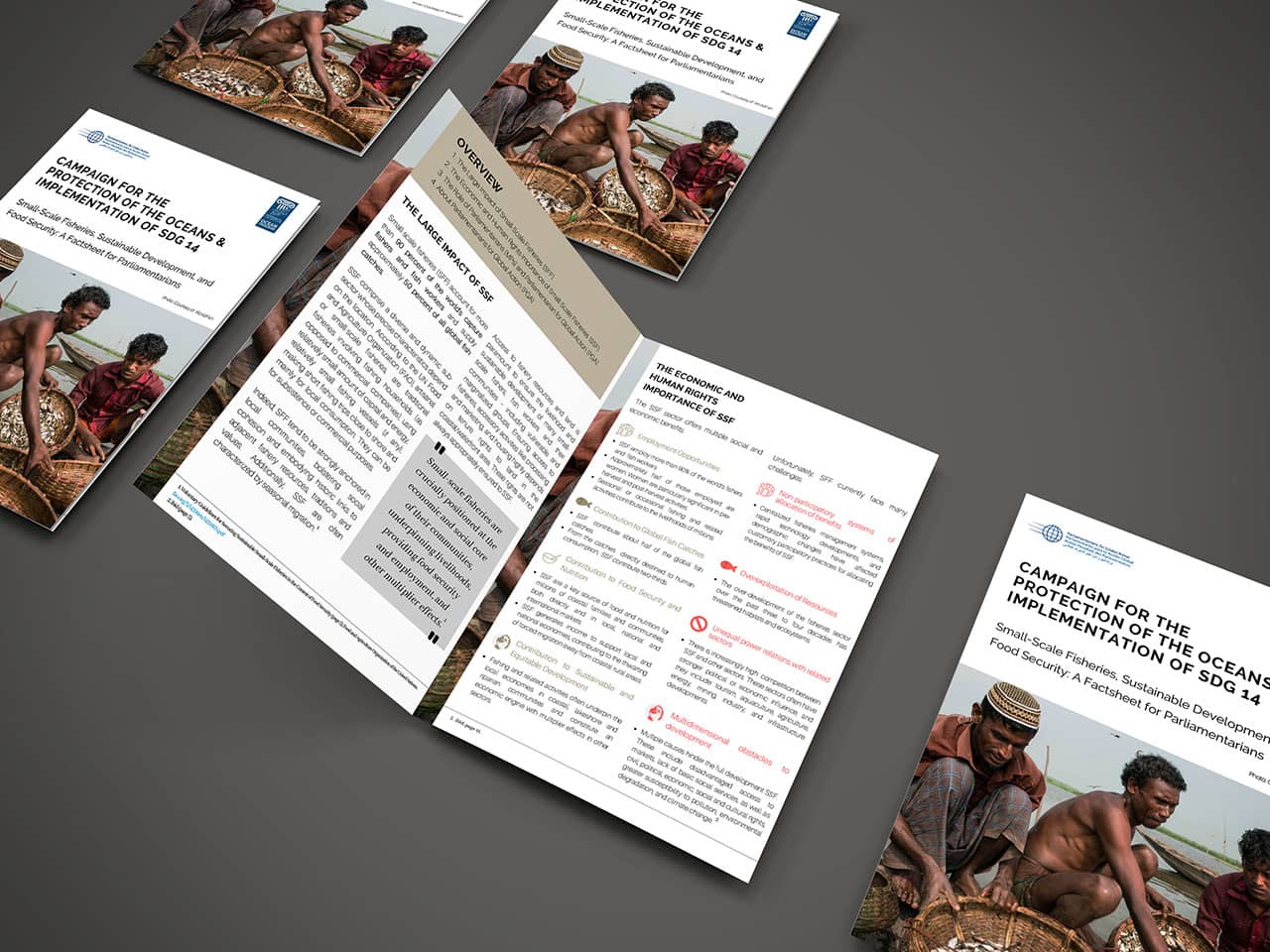
Small-scale fisheries (SFF) account for more than 90 percent of the world's capture fishers and fish workers and supply approximately 50 percent of all global fish catches.
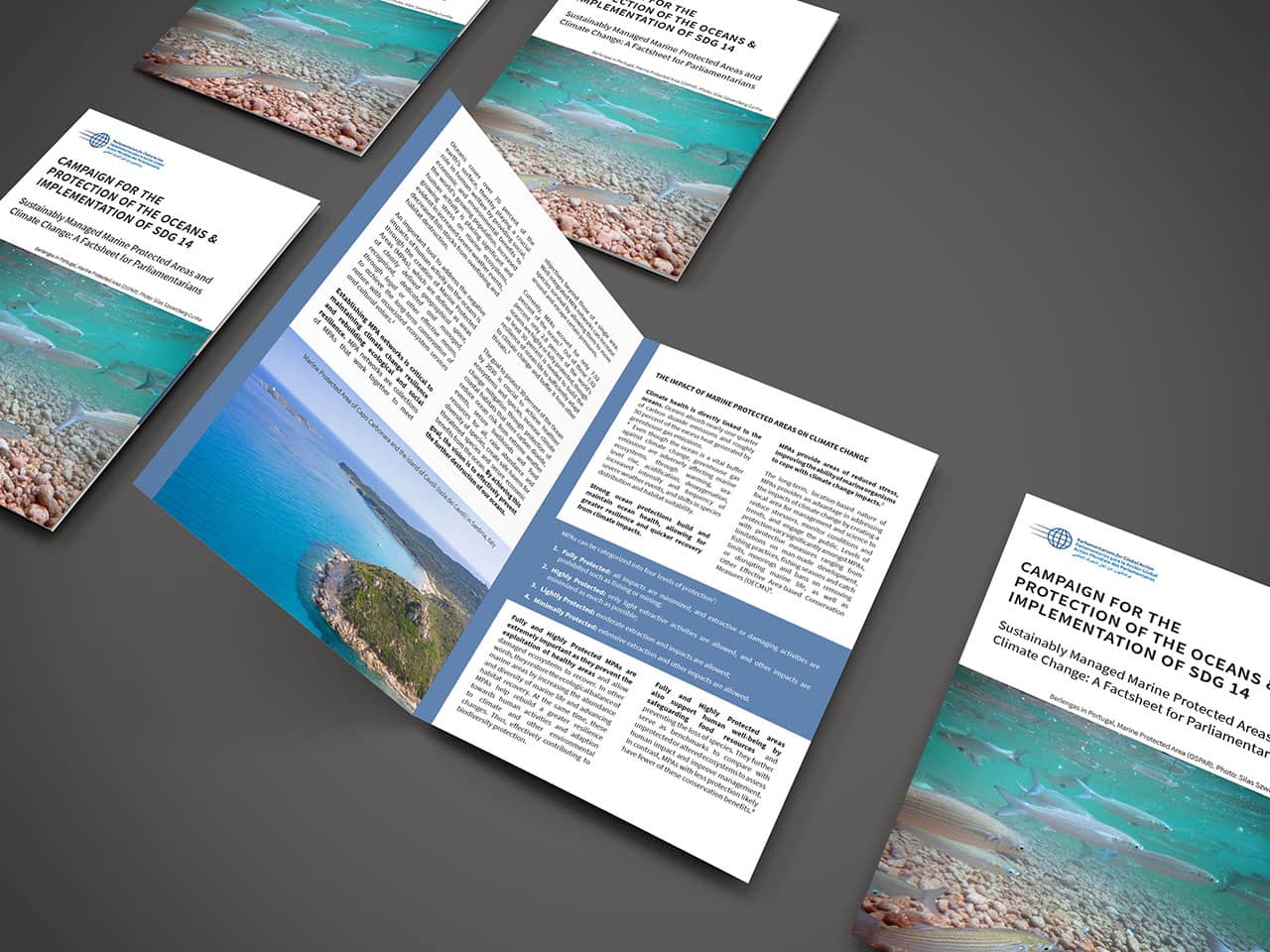
Currently, MPAs account for only 7.92 percent of the ocean, though at least 30 percent is needed to build the resilience of ocean life to sufficiently adapt to climate change and buffer it from other threats.
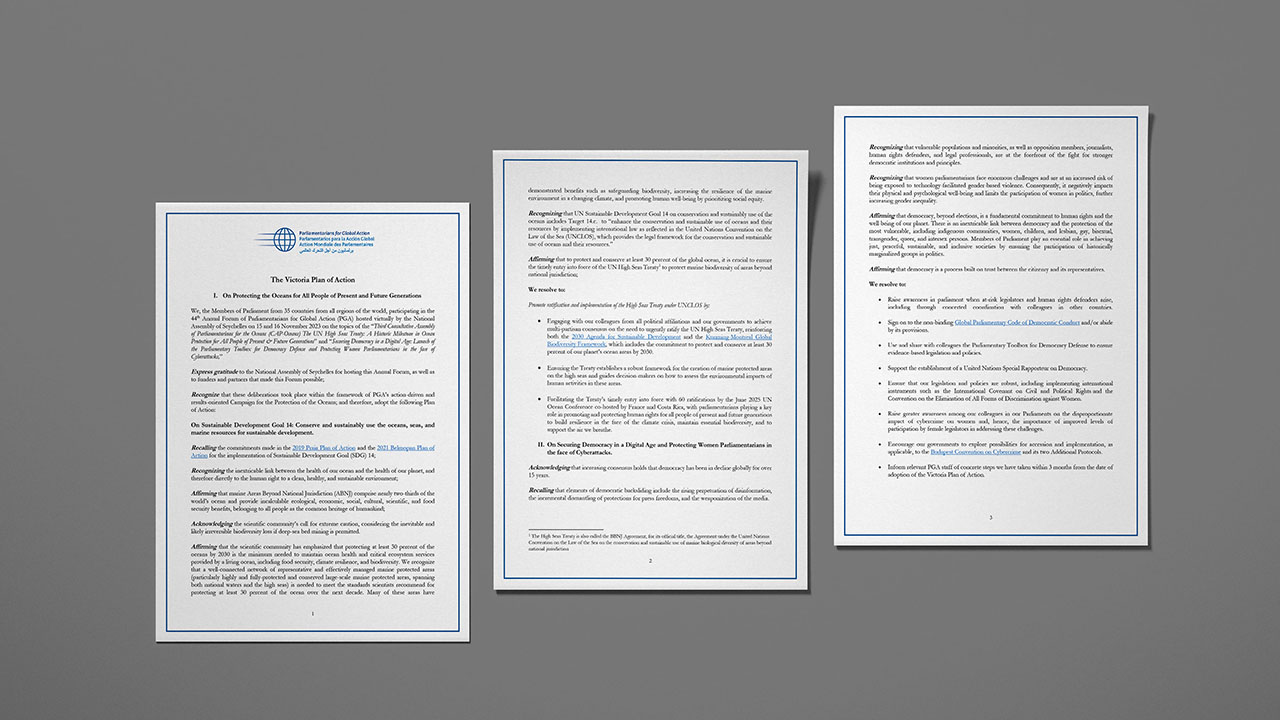
At the conclusion of the 44th Annual Parliamentary Forum, parliamentarians adopted the Victoria Plan of Action to describe commitments and follow up actions.